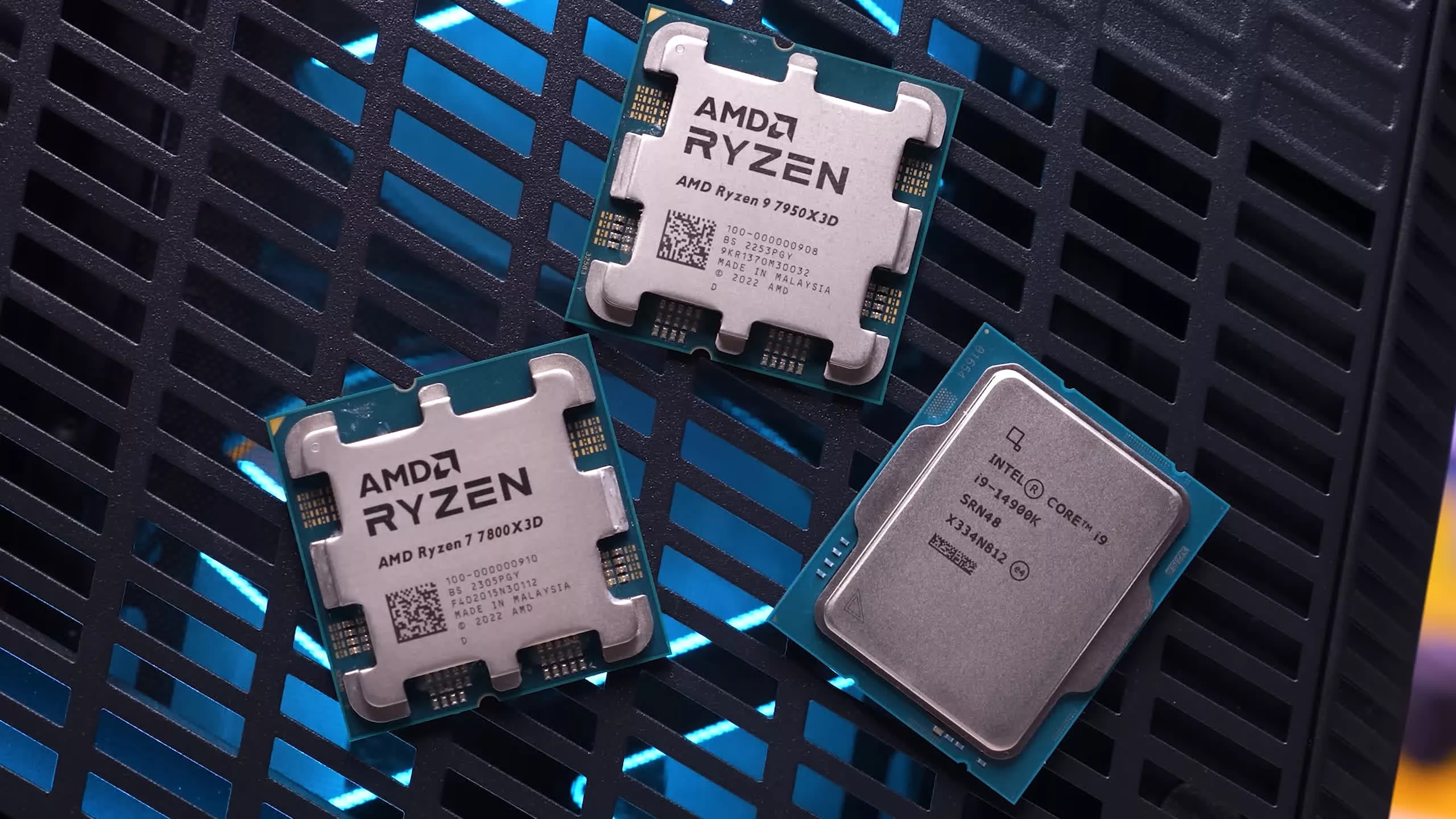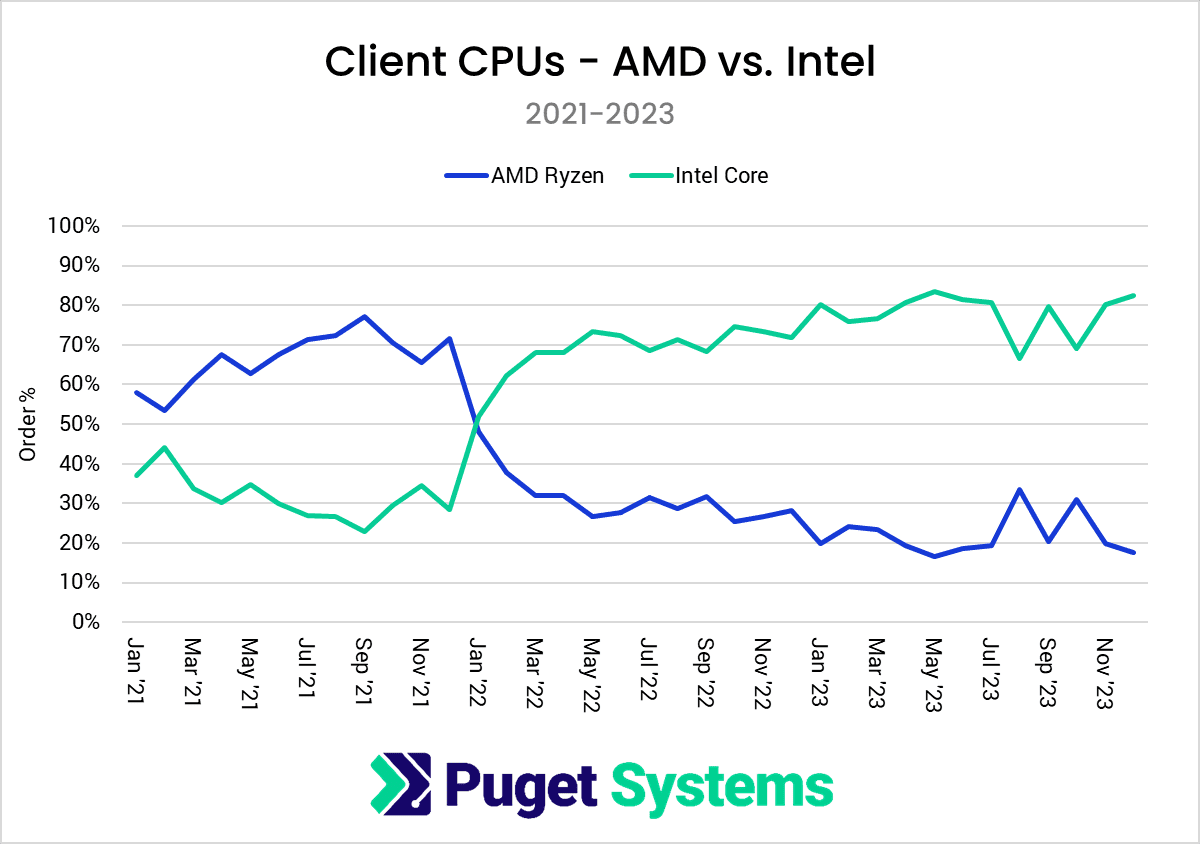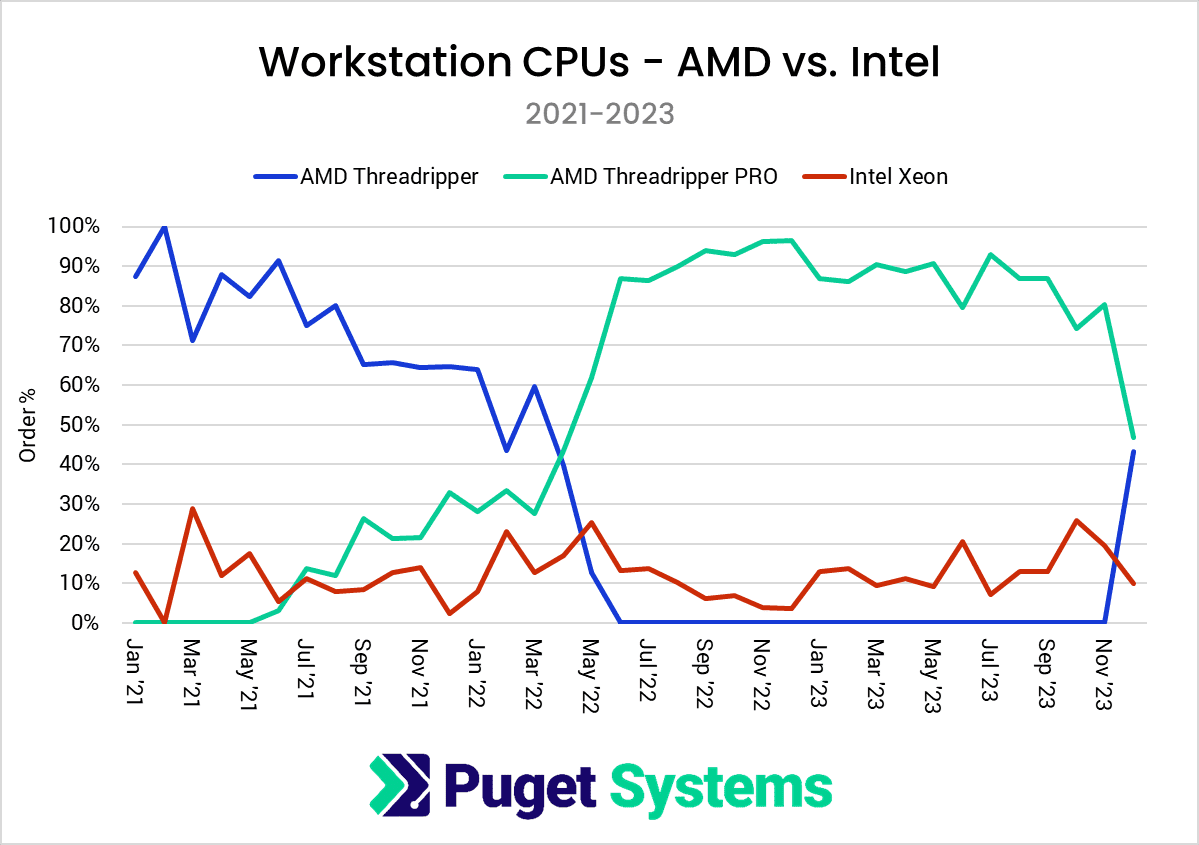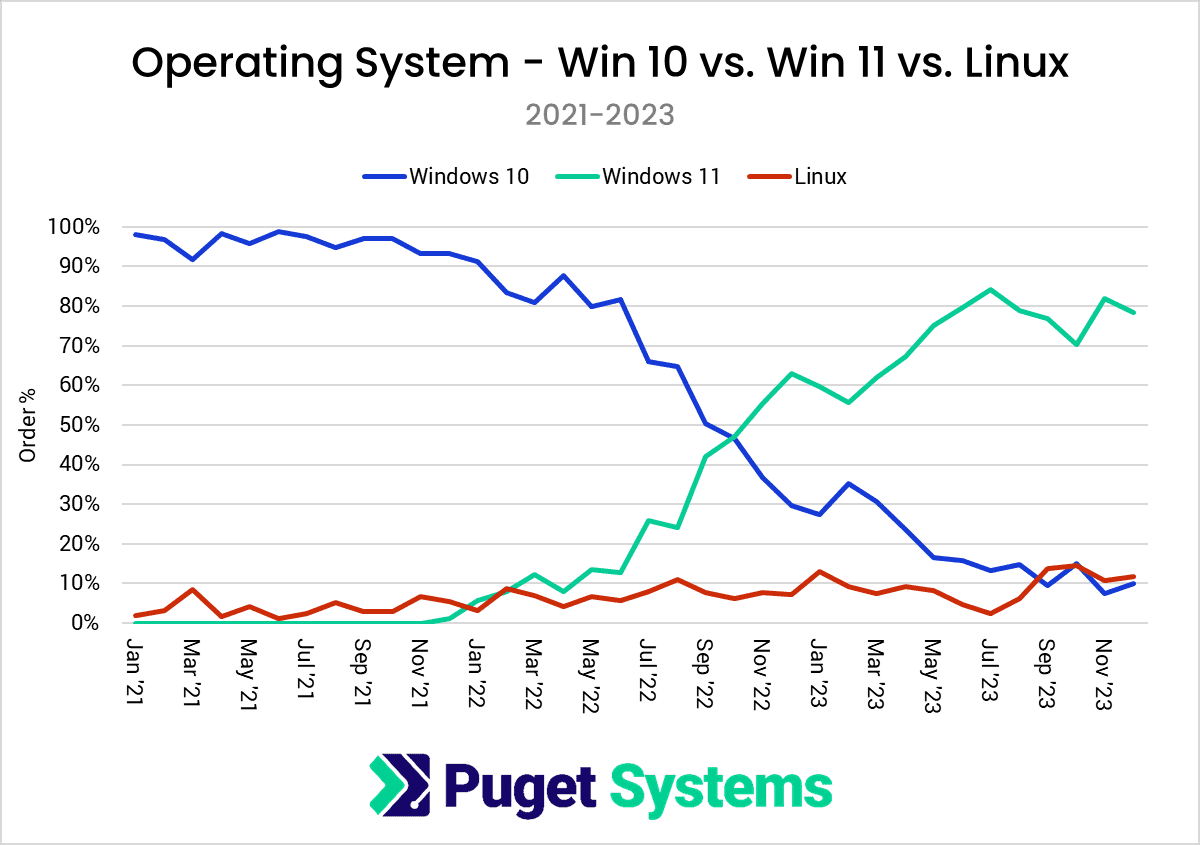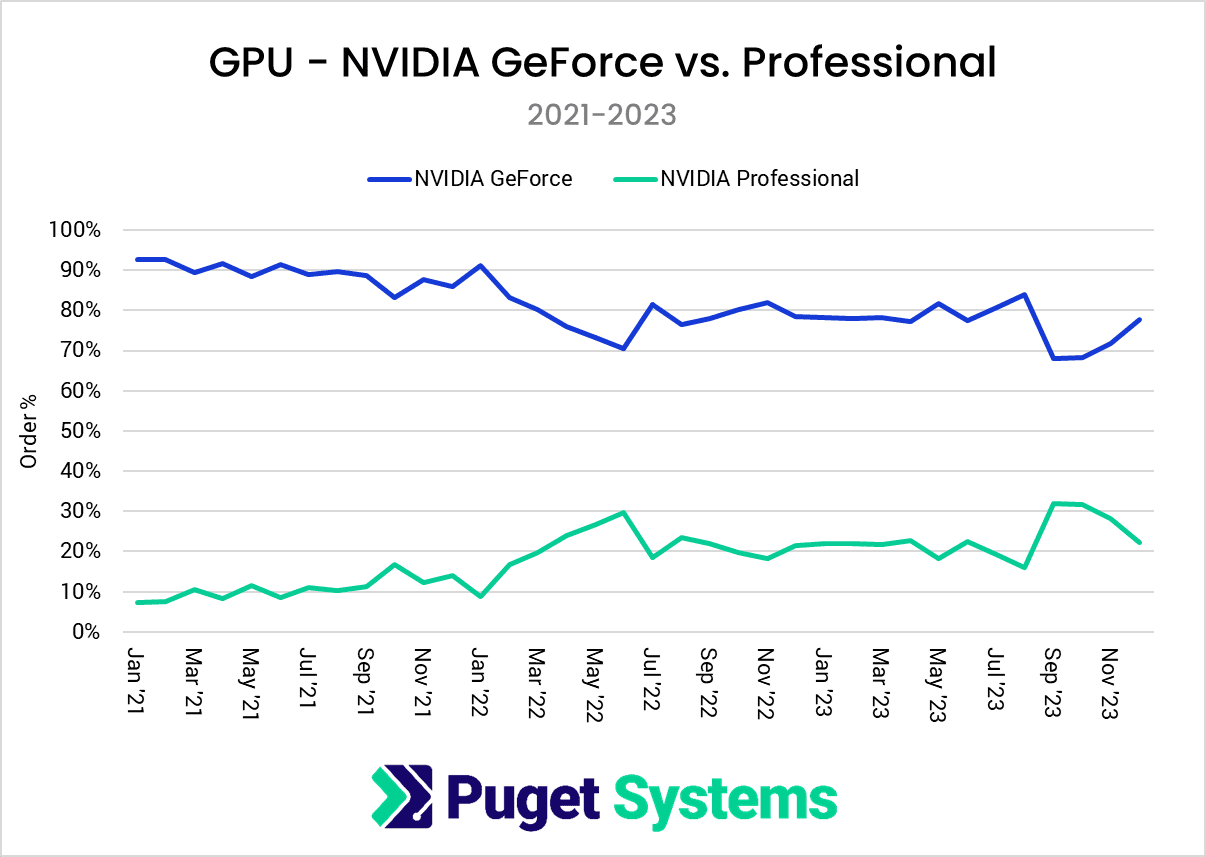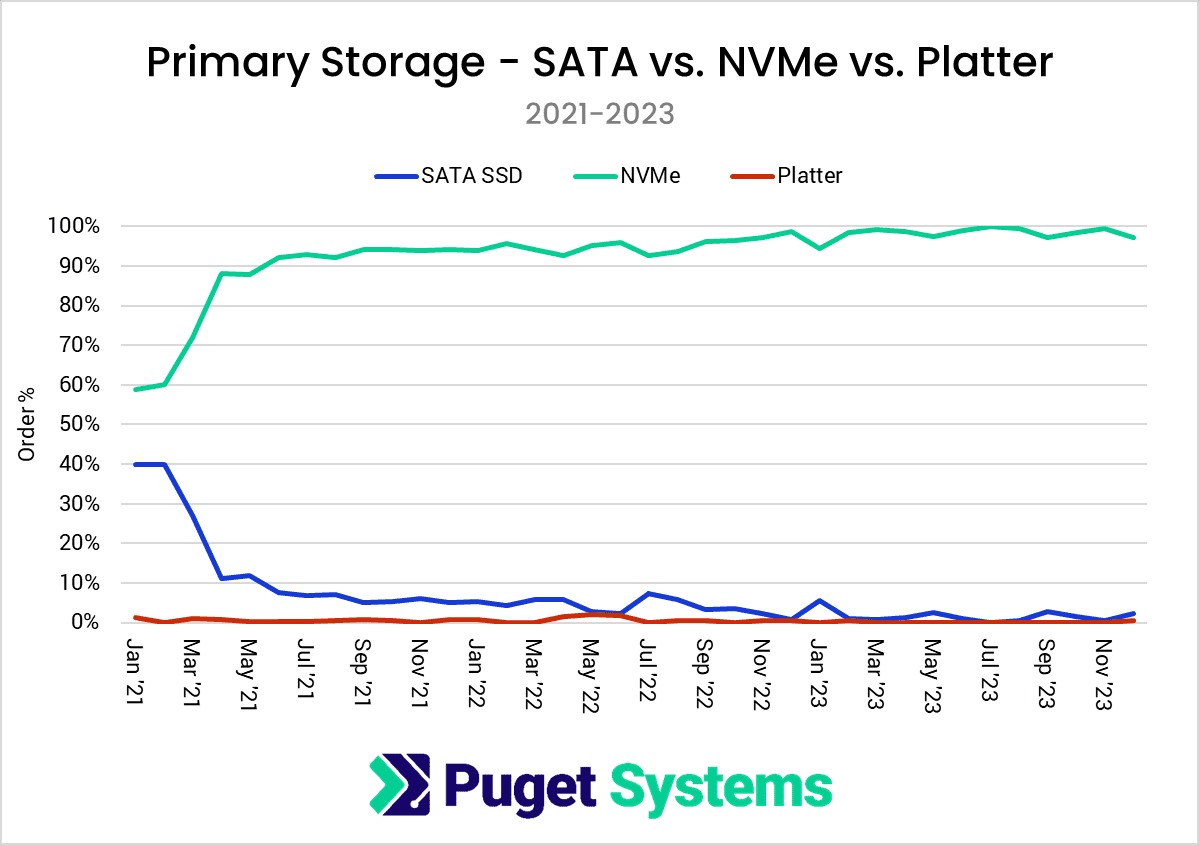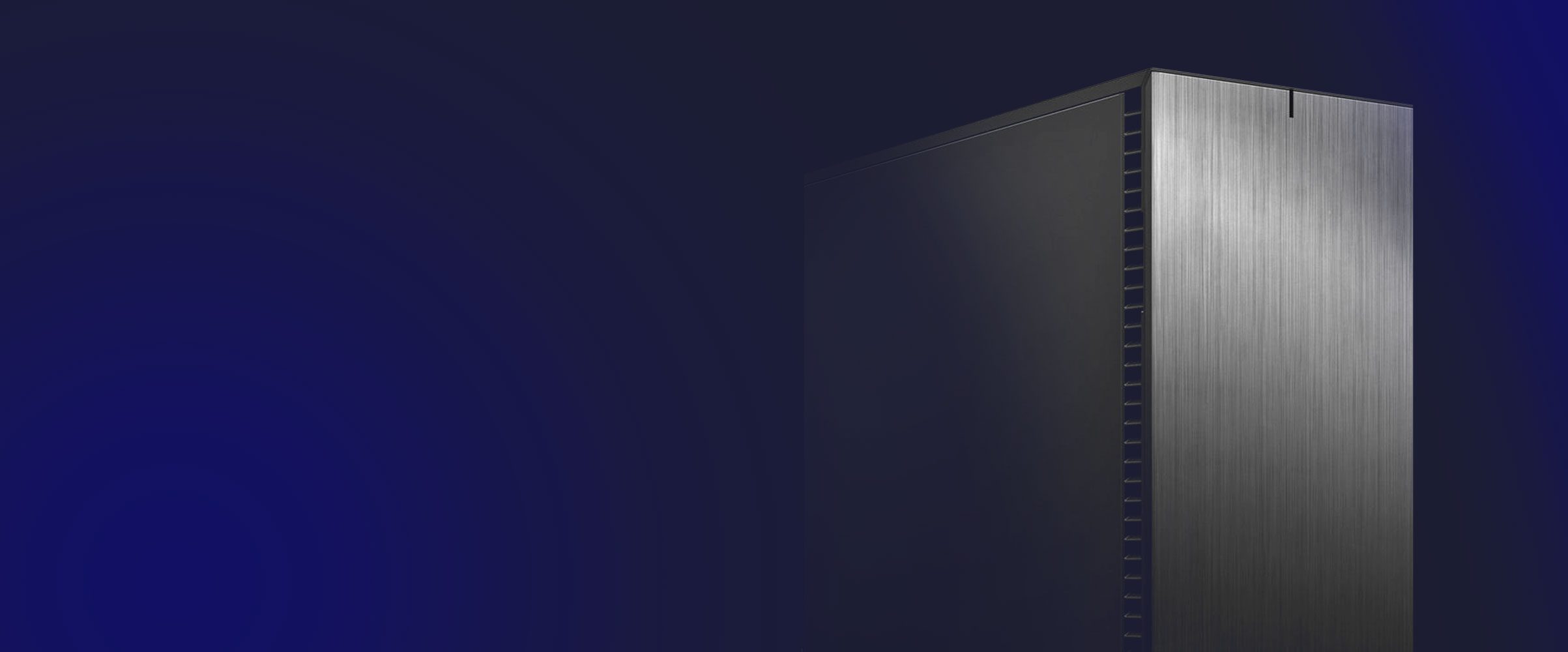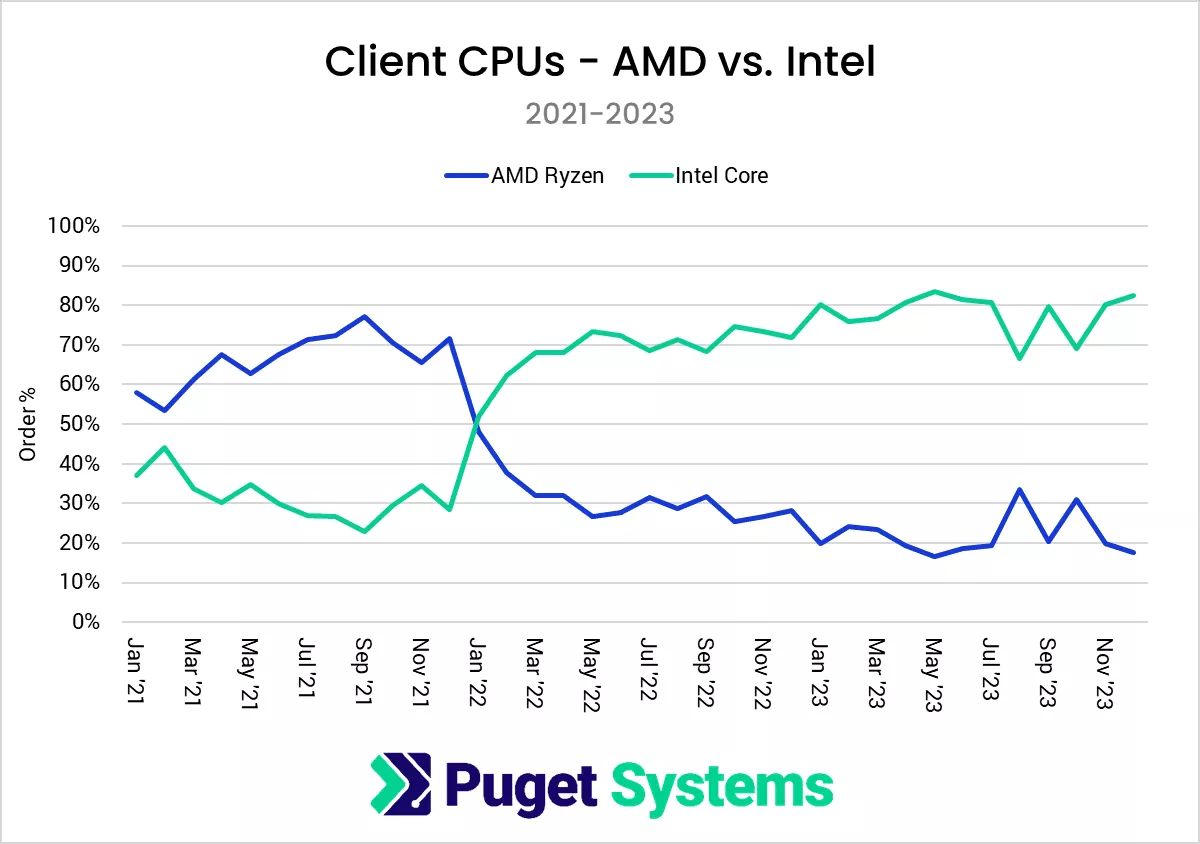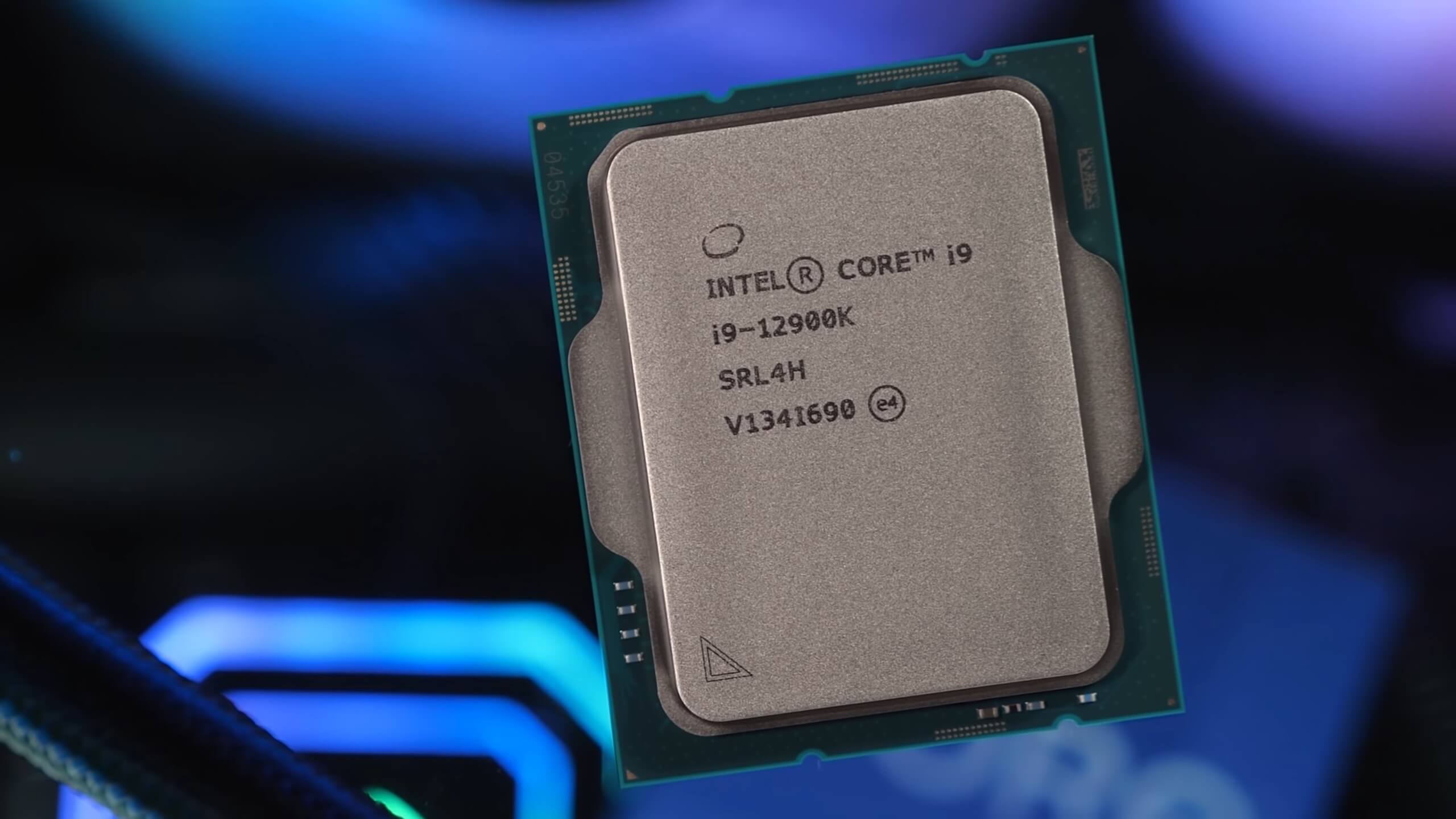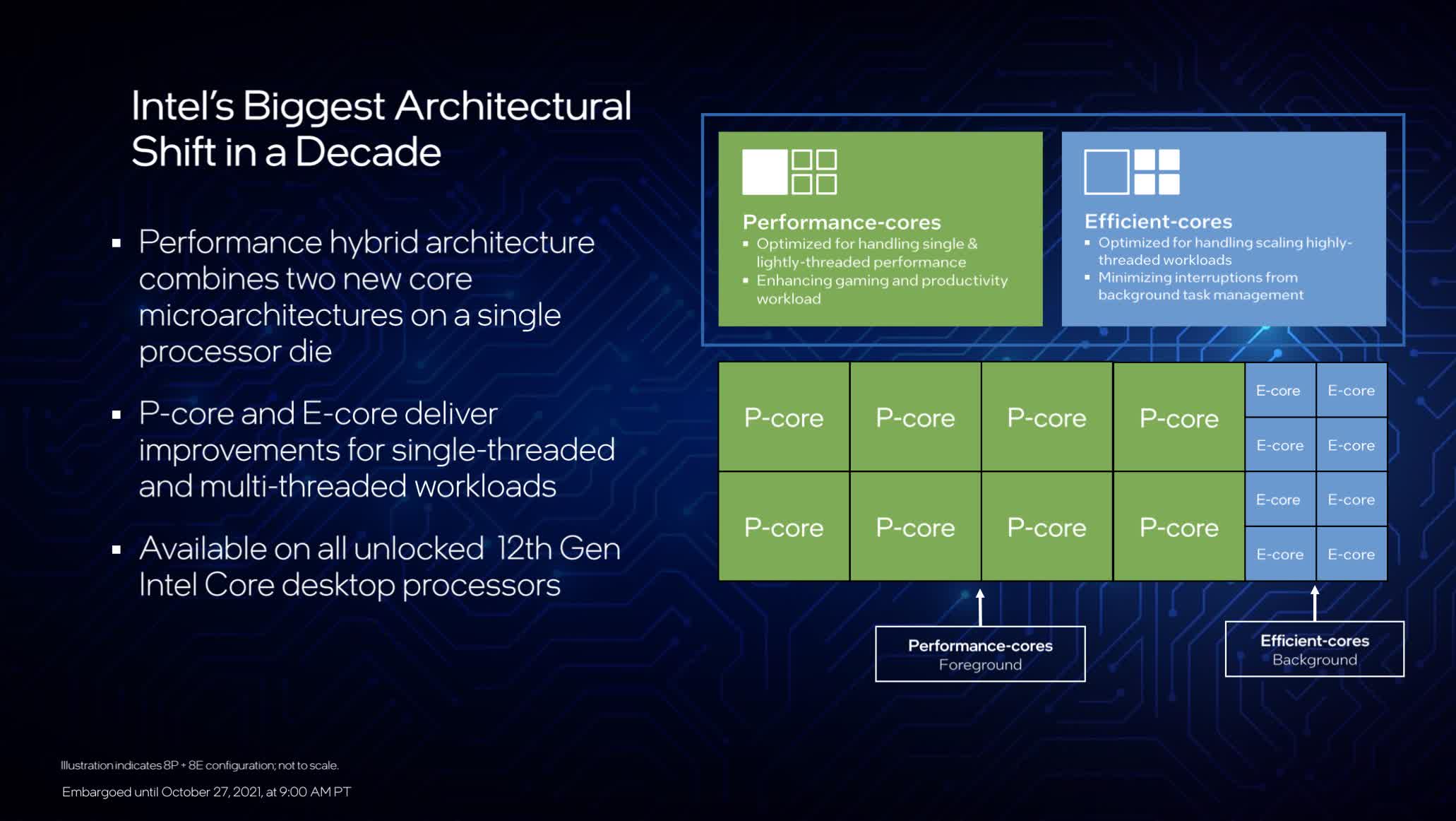In brief: Custom PC builder Puget Systems has released its 2023 Hardware Trends survey, revealing what its orders looked like over the 12 months of last year. When it comes to client CPUs, Intel held a considerable lead over AMD, but Team Red dominated in the workstation. On the software side, the number of orders with Windows 11 increased as Windows 10 system sales declined.
As Puget's systems are aimed at high-end workflows for content creation, engineering, and scientific computing, its sales are weighted more toward workstations, though it still sells PCs with client processors, which it defines as AMD Ryzen and Intel Core CPUs.
Intel has been leading the client orders section since January 2022, and last year was no different. Team Blue's Intel Core i9 13900KS launched in the first quarter of 2023, while its 14th-gen series arrived in the final quarter, helping ensure Intel chips were found in about 80% of Puget's client CPU orders. AMD did launch the popular Ryzen 7900X3D/7950X3D in Q2, but it still only managed a 20% share. It'll be interesting to see what impact the recent Ryzen 8000 and upcoming Ryzen 9000 series have on this year's orders.
When it comes to workstation orders, it was AMD that dominated in 2023, with its Threadripper Pro making up the lion's share of sales. Despite the Threadripper 7000 series only arriving in December, it still managed to nearly reach the same combined order numbers as the Threadripper Pro 5000 and 7000. Intel's Xeon chips, meanwhile, were only in around 10% of orders.
Puget also looked at the OS side of things. Microsoft will be happy to learn that Windows 11 is now used in about 80% of Puget's systems, though around 10% of customers opted to downgrade to Windows 10, which is about the same percentage of people who choose Linux.
Windows 11 is used by around 42% of Steam survey participants, about 12% less than Windows 10. That's still better than the global view, where Windows 10 is found in about 7 out of 10 PCs.
Puget uses Nvidia GPUs in its systems almost exclusively, but it still offered a breakdown for its GeForce gaming and Professional (formerly Quadro) orders. GeForce made up about 80% of the systems in this category.
Finally, Puget compared SATA, NVMe, and Platter storage (primary drive) orders. Unsurprisingly, NVMe drives were in 95% of orders. The company writes that a handful of specialty accounts that specifically need SATA for one reason or another kept this from being 100%.
https://www.techspot.com/news/102156-puget-systems-2023-review-intel-dominated-client-space.html
